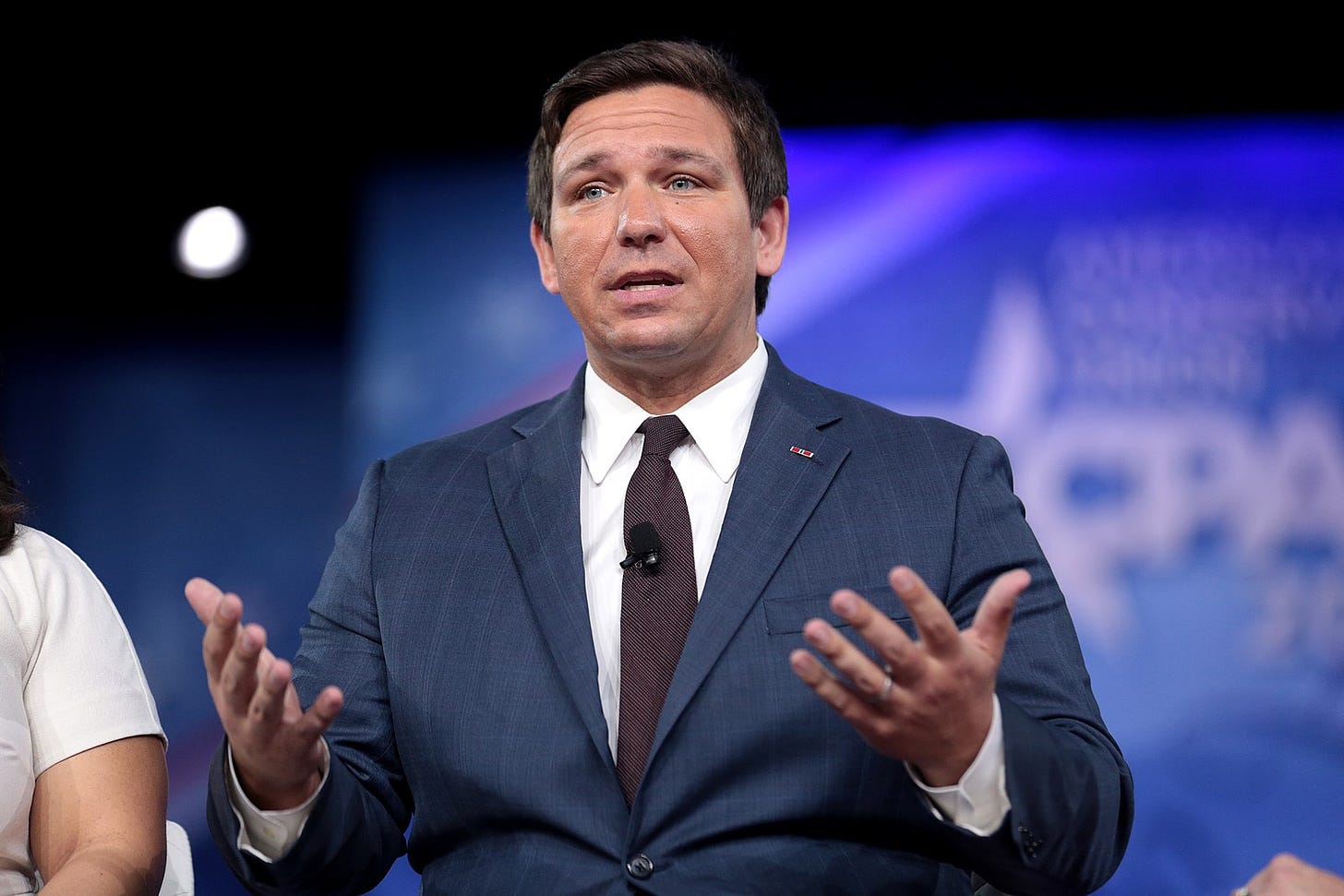Why DeSantis is the Trump Alternative... For Now
DeSantis ran for governor in a way that still gives him a huge name recognition advantage. It won't last.
Depending on how you look at the data and whom you ask, Florida Governor Ron DeSantis is either winning the Republican presidential nomination contest or slightly trailing Donald Trump, and he’s either gaining ground or losing it. But whatever the specific numbers say, he’s the only candidate other than Trump with significant double-digit support and is, at least for now, the most clear alternative to him. So how exactly did he get to this coveted position?
My impression is that this has very little to do with the presidential race now — public opinion will shift a lot over the coming months as people learn about the candidates — and a great deal to do with how DeSantis ran for governor in 2018.
When DeSantis first ran for the Republican gubernatorial nomination in Florida, he was neither the best-known nor the best-funded candidate. He was running as a member of Congress against Florida’s then-Agriculture Commissioner Adam Putnam. DeSantis made the very shrewd decision at that time to run a national campaign for a state party nomination — that is, he sought to get on Fox News as much as possible.
By repeatedly reaching out to Fox producers and going on TV to defend Donald Trump through a series of scandals, he achieved two things: 1) He massively increased his name recognition among Florida’s Republican primary voters, the vast majority of whom regularly watch Fox News, and 2) He impressed then-President Trump, who endorsed him. DeSantis thus won the “Fox primary,” helping him win the nomination.
This strategy from six years ago is yielding dividends today. After all, his first bid to become Florida’s governor managed to put him on Republicans’ televisions all across the country. So he has the name recognition now that other credible presidential candidates are still working to achieve.
DeSantis has also been pretty skilled in keeping his name in the media in recent years. He’s hardly the only Republican governor pushing a legislative agenda that goes hard right on cultural issues — this is going on in Texas, Iowa, and several other states right now — but DeSantis is getting the most recognition for it at the moment. Partially, this is just snowballing off his original high name recognition. But he may have some legitimate skill in this area.
Also, to a modest extent, Republicans are impressed by some distinct advantages he has over Trump. For one, he seems to know how to shepherd a policy agenda through a legislature. For another, he won by 19 points last year in a state that was recently labeled a swing state, unlike Trump who has appeared to be something of a drag on the GOP ticket in recent cycles. But again, DeSantis isn’t the only Republican governor who had a good 2022 cycle; he’s just the only one getting national attention for it.
Surveys about primary races nearly a year before the actual contest aren’t usually very predictive. For the most part, name recognition guides people’s choices at this point. Republican voters know all they need to know about Trump; some love him, some are wary about making him their next nominee. For those in the latter group, they’re interested in an alternative. So when they’re asked who that might be, DeSantis’ name is simply the most prominent one available, at least for now.
It’s quite plausible that DeSantis’ advantage won’t last. The first Republican presidential debates aren’t that many months away, and some other candidates will start to gain prominence from those. Nikki Haley, Tim Scott, Mike Pompeo, or someone else could have a good series of news cycles and then become the temporary champion of the Not-Trump Republicans. (People will say then that DeSantis “peaked too early” or made some catastrophic error, but really, his leading position now is largely a function of an ephemeral name recognition advantage.)
And we’re only starting to get a sense of how DeSantis performs on the stump outside of his home state. He recently spoke in Iowa, and he apparently drew large crowds but is still not the most thrilling of public speakers or retail politicians. As we learned from Rick Perry in 2012 and other previous candidates, just because people are interested in you doesn’t mean that your skills translate well to an early contest state.
In general, it’s far too early to assess the likelihood of a DeSantis nomination — the dude hasn’t even announced yet. But it’s fair to say that the advantages he has are largely based on name recognition. This won’t last forever, but he’s played that hand rather well so far.






At this point, it seems like he gets the people who don't like Trump. But I wonder if they have learned anything about what he does yet. His politics aren't that different of Trump's as far as I can see.